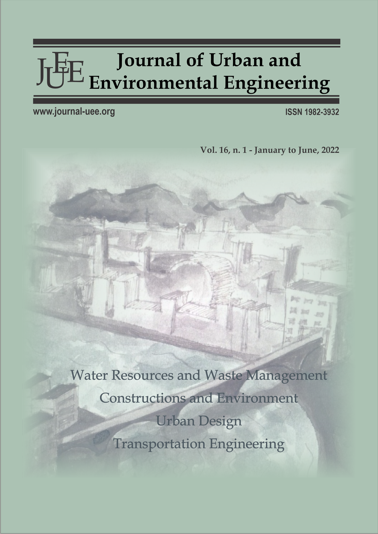INFLUENCE OF GRANULOMETRY ON THE AEROBIC COMPOSTING PROCESS OF VEGETABLE SOLID WASTE.
Keywords:
aerobic biodegradation, granulometry, organic compound, organic solid waste.Abstract
The efficiency of the composting process depends on the action and interactions of the microorganisms, which are dependents on favorable conditions, such as temperature, humidity, aeration, pH, types of organic residues used, carbon-nitrogen ratio and grain size of the residues to be used biodegraded. The granulometry is an important parameter to be considered, because the smaller the particles, the greater the area available to the microorganisms, creating mechanisms to accelerate the biodegradation process. Therefore, the objective of this research work was to evaluate the influence of granulometry on the aerobic treatment process of plant solid residues. The experimental work was performed in aerobic reactors of 48 liters of unit volumetric capacity, in two different treatments and three repetitions, totalizing 6 reactors. The solid wastes used were collected in the EMPASA, transported to the EXTRABES sanitation laboratory and subjected to the unitary crushing, drying and sieving operations in sieves of 5.5 and 7.0 mm. The physical and chemical parameters monitored were temperature, pH, moisture percentage, total volatile solids, total organic carbon, taking into account APHA of basic recommendations (2012). The monitoring period was 45 days for treatment 1 and 55 days for treatment 2. It was found that there was no preponderant influence of particle size on the performance of the composting process nor on the quality of the organic compounds produced.Downloads
Download data is not yet available.
Downloads
Published
2023-01-20
Issue
Section
Articles




